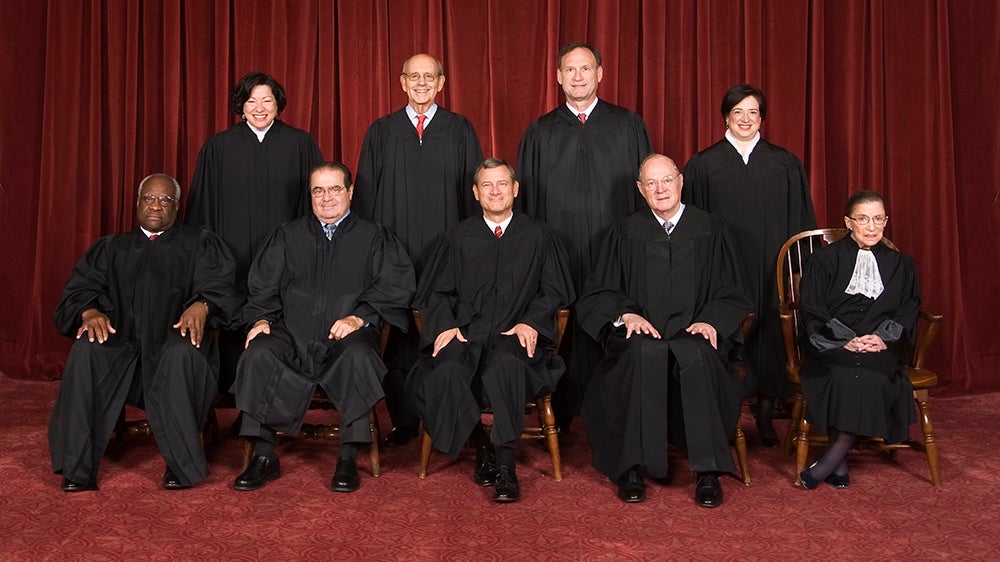Obamacare on trial…again: King vs. Burwell
Listen
The nine justices of the Supreme Court will hear challenges Obamacare's subsidies next week. (Steve Petteway/from the Collection of the Supreme Court of the United States)
Next week, the Supreme Court will hear arguments challenging the constitutionality of subsidies key to the success of the Affordable Care Act.
On Wednesday, March 4, the Supreme Court will hear a case that challenges one of Obamacare’s key provisions: subsidies that make coverage affordable for millions of people who get insurance through federally run online marketplaces.
According to Drexel law professor and court watcher Lisa McElroy, the fate of the Affordable Care Act could boil down to one, single word: “state.”
The statute says that to get a subsidy, customers must enroll through “an Exchange established by the State.” The challengers in the case, King vs. Burwell, argue people who buy their insurance through federally run online marketplaces in 34 states are not eligible for those subsidies. Only those who live where state governments have set up their own exchanges can claim the tax credits.
The federal government has said if the subsidies are removed, the Affordable Care Act will go into a ‘death spiral.’
“(The government says) if you get rid of the ability of all these people to get their subsidies, they’re not going to be able to buy the insurance and the ACA will crash,” McElroy said.
According to estimates from the liberal think tank the Urban Institute, more than six million people would ultimately become uninsured if the court sides with the challengers.
In defending the health law, the federal government argues it was not Congress’ intention when formulating the legislation to limit subsidies to state-run exchanges, and that point is clear given wording in the rest of the law.
The decision will likely come down to how the justices interpret the use of the word “state.”
“There are some justices on the court who think that you just look at the words, and if the words seem pretty clear, then you go with what the plain text says,” McElroy said.
“The challengers are saying an 8th grader could understand that.”
Others on the court look more closely at a word in context, and examine the consequences to legislation as a whole if a certain interpretation is taken.
Recently, questions have emerged about if the four plaintiffs in the case have the legal authority to challenge the statute in court: whether they would need to buy insurance at all because they are eligible for other forms of health care. For example, two, including the case’s namesake King, are Vietnam veterans and could be eligible for free medical care from the government, McElroy said.
“It makes it possible that this case could go away,” McElroy said of the standing issue.
The Supreme Court hands down all its decisions by the end of June, and watchers guess this will be among the last of the batch.
WHYY is your source for fact-based, in-depth journalism and information. As a nonprofit organization, we rely on financial support from readers like you. Please give today.



